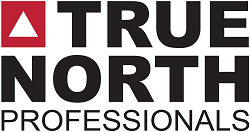Anita Sands Contributor
In the aftermath of the economic tornado that has whipped through the world, storm clouds remain on the horizon, and major questions remain unanswered. Will there be a second wave of Covid-19? How bad will it be? Will the recovery take the shape of a U, or a W, or some other letter for that matter?
No one knows. What is clear is that we now face a level of ambiguity that is distinctly unfamiliar and for which many organizations are woefully ill-equipped.
The past few months have opened our eyes to exactly the kind of leaders we need—and in some pointed and painful cases, the leaders we lack. Now that we know the unprecedented is possible, it’s time to ask some pivotal questions: Who are the right leaders in these disconcerting times? Who is the best man (ahem, or woman) for the top job? And how can we go about finding them?
A future defined by ambiguity calls for a different kind of leader, or at a minimum, a different approach to leadership. As the adage goes, if you do what you always did, you’ll get what you always got. If we don’t reconsider how we source, appoint and evaluate our leaders, we’ll miss the opportunity to bring fresh and diverse skills and perspectives to positions of influence inside organizations at a time when they are most needed.
Now is the time for every organization to ask itself the following questions:
How Are Leaders Groomed Within The Organization?
Gautam Mukunda, an assistant professor at Harvard Business School and author of Indispensable: When Leaders Really Matter, has identified patterns in the careers of some of the world’s most historically successful leaders but also explores the systems that place them in positions of power to begin with. As he explains, often “the process by which leaders come to power homogenizes the pool of potential leaders.” Having a stringent internal succession planning process within a corporation practically guarantees that those who make it to the top become increasingly homogeneous along the way.
Consider your organization’s process for grooming people or appointing them to senior roles. How much does this process “filter” who makes it onto the docket for consideration? Is it so rigid that it stops people with unique personalities, eclectic backgrounds, or other “outliers” from having a shot? Does the process unknowingly allow for unconscious biases, or filters that ensure only a certain type of person can come to power? With only 1% of Fortune 500 CEOs being Black and 7.4% being women, it’s a fair question.
Source: Link



